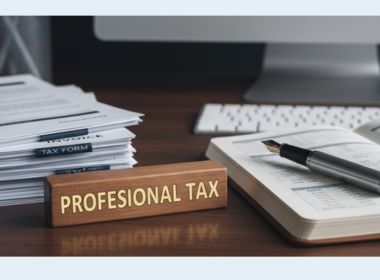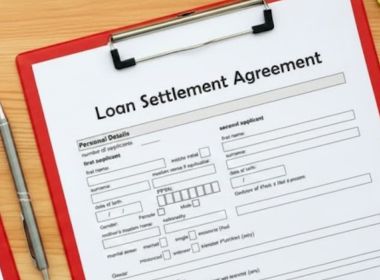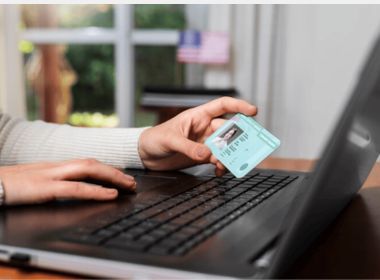Search Suggestions
- Gold Loan
- Money Transfer
- Mutual Funds

Top 7 Ways to Recover Your CIBIL Score After a Default
CIBIL score is one of the strongest indications of your creditworthiness. It gives an indication of how responsibly you have used credit options like loans and perhaps a credit card in the past. Missed payments or defaults on a loan will cause your grade to decrease significantly, which will impact your ability to secure credit in the future. But the good news is that a poor CIBIL score is something that can be rebuilt with regular work and discipline.
If you have experienced a financial default, don’t panic. With the right steps, you can take control and rebuild your score.
Top 7 Ways To Recover Your Cibil Score After A Default:
Review Your Credit Report Regularly
The initial stage of correcting your credit score is knowing your position. Get your credit report from any recognised credit bureau like CIBIL. You can request one free credit report per year from each bureau.
Check for:
- Errors in loans or credit card amounts.
- Incorrect personal information.
- Payment jurisdictions do not apply to delayed/missed payment entries, which are incorrectly listed.
- Loans or credit cards in your name that you didn’t apply for (a potential indication of fraud).
If you see any inaccuracies, file a dispute now! Correcting such mistakes is a direct answer to how to clear CIBIL score and may result in a quick improvement in your score.
Repay Outstanding Dues
When you do default, your number one goal is to either settle or pay off your debts. One of the most influential factors affecting your CIBIL score is how you've paid back in the past.
Here’s what you can do:
- Begin with high-priority debts: Concentrate on loans or credit cards with the highest overdue amounts or interest rates.
- Negotiate with lenders: Some lenders are willing to work with borrowers and will provide a repayment plan or negotiate a discount on some of the interest.
Settling or paying off loans in full and on time shows that you are a responsible borrower, something that will certainly help you to accomplish your CIBIL score after default target.
Avoid Further Defaults and Make Timely Payments
And one of the best ways to restore trust with lenders is by making future payments as promised. This includes:
- Paying EMIs on time.
- Settling credit dues before the due date.
- Automation or auto-debit reminders to prevent missing payments.
All it takes is one more missed payment to bring your score back down a peg. Thus, it is required to create a clean record for repayment of loans after a default has been made for those who are looking for how to improve CIBIL score after settlement or default.
Avoid Taking New Loans Immediately
It could be tempting to take out another loan to pay off older ones, but that can backfire. Applying for multiple loans at the nick of time reflects credit-hungry behaviour and financial instability.
Consistent applications are frowned upon by credit bureaus, and this might stall your attempts to repair your credit score.
Instead, try:
- Consolidating debts.
- Diversifying sources of income to service the debt.
- Staying away from unnecessary credit for a few months till your CIBIL score improves.
Opt for a Secured Credit Card
If you have a history of default, banks may be leery of extending traditional forms of unsecured credit to you. But you can still obtain a secured credit card against a fixed deposit.
Here’s how it helps:
- It offers credit to you, and simultaneously reduces the exposure for the bank.
- Responsible use and payments will contribute to your credit score.
- It’s one of the most effective strategies if you’re wondering how to improve CIBIL score after default.
Use the card sparingly, preferably under 30% of the limit, and pay off the full bill every month to maximise your score recovery.
Maintain a Healthy Credit Mix
Having a balanced combination of secured (like home or car loan) and unsecured loans (like credit card or personal loan) is good for your CIBIL score.
If your credit report reflects your debt in terms of unsecured loans only, particularly after a default, it could be indicative of high risk. After your credit has started to heal, remember:
- Take any small secured loan (such as a gold loan or an FD-backed loan).
- Opt for a long-term loan with low EMIs for a consistent repayment history.
Not only does this set a diverse credit profile, but it also demonstrates that you can responsibly use and manage different types of credit.
Be Patient and Consistent
One of the key, yet most often forgotten pieces of advice is patience. Recovering from a default won’t happen overnight. Credit scores take time to improve because they reflect long-term credit behaviour.
Here are some extra tips:
- Maintain low credit utilisation and keep the usage of credit low (less than 30% of the credit limit).
- Don’t close old credit cards with a good repayment history.
- Monitor your CIBIL score every few months to track improvements.
You will eventually see your score rise, so long as you stay financially disciplined and keep a consistent payment history.
Suggested Read: Different Credit Score Ranges and What They Mean
Having a default on your CIBIL score can be an intimidating situation, but it doesn’t mean that it is impossible to recover your score. Whether you’re trying to understand how to improve CIBIL score after default, how to clear CIBIL score, or rebuild after a settlement, the journey starts with taking control of your finances.
Monitor your spending, pay off debts and show consistent good credit behaviour, and before you know it, you’ll have a solid credit profile to show lenders.
- Apply PAN Card Online
- Application
- Eligibility
- Documents Required Forms
- Form 49A
- Form 49AA
- Fees
- Correction & Update
- NRI PAN Card
- Tracking
- Penalty
CATEGORIES
OUR SERVICES
-

Credit Score
-

Gold Loan
-

Personal Loan
-

Cibil Score
-

Vehicle Loan
-

Small Business Loan
-

Money Transfer
-

Insurance
-

Mutual Funds
-

SME Loan
-

Corporate Loan
-

NCD
-

PAN Card
-

NPS
-

Custom Offers
-

Digital & Cashless
-

Milligram Rewards
-

Bank Mapping
-

Housing Finance
-

#Big Business Loan
-

#Gold Loan Mela
-

#Kholiye Khushiyon Ki Tijori
-

#Gold Loan At Home
-

#Sunherisoch
RECENT POSTS

Understanding Gold Bees: How it Works, Net Asset Value, Returns and More
Know More
Multi Cap and Flexi Cap Mutual Funds: How Are They Different?
Know More
Online Personal Loan vs. Offline Personal Loan - Which Is Better for You?
Know More
10 Tips to Improve Chances of Personal Loan Approval
Know More
10 Factors Affecting Mutual Fund Performance Explained Simply
Know More
10 Key Factors That Affect Your Personal Loan EMI
Know More
What Is Fine Gold? Meaning, Purity (999), Uses & Price Explained
Know More
Gold vs Silver: Which is Better as an Investment?
Know More
Why Gold Is a Safe Haven Asset: Meaning, Benefits & Real Examples
Know More
Gold or Bitcoin - Best Investment for Value Retention
Know MoreFIN SHORTS

The Best 7 SIF Funds of 2026: A Better Way to Invest
Know More
Gold Price Hits ₹1,40,000: How It Impacts Gold Loan Amounts
Know More
How to Check Loan Number: Step-by-Step Process
Know More
How to Open an SIP Account: Online and Offline Process
Know More
How Do I Apply for MSME Certification Online in India?
Know More
7 Important Reasons to Choose Hallmark Gold When Buying Jewellery
Know More
What Are Co-Pay and Deductibles in Insurance Policies?
Know More
Should You Take a Loan Against Your Mutual Fund or SIP?
Know More
Top 5 Best Mid-Cap Mutual Funds to Watch in 2026
Know More
Are Personal Loans Right for Retirees? Key Points to Consider
Know More
What Happens to a Personal Loan After the Borrower Dies?
Know More
Best Loan Choices for Credit Scores of 580 and Below
Know More- South +91 99469 01212
- North 1800 313 1212





